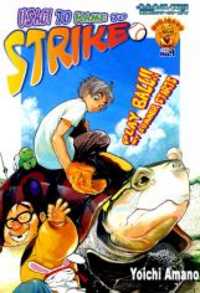Summary

Doll
by Jenna Rose
Too scared to cam? To shy for video? Get paid to be a doll! Click here to get cast!
That’s what the ad said, and seeing how pathetic her bank account looked, Gwen decided why not have her body molded into one of those life-sized toys men like to buy? It’s not like she actually had to do anything with them.
Simple, right? But not when the dreamy, far-too-young and handsome CEO of the company sees her and decides he wants her all to himself.
.
Read
Doll on http://kissnovel.net
Martial Peak Reviews
Jenna Rose’s Doll is a provocative exploration of identity, self-worth, and the complexities of desire in a world increasingly obsessed with superficiality. The premise is both intriguing and unsettling: Gwen, a young woman struggling with her finances, answers a bizarre ad that promises to transform her into a life-sized doll for men. This setup immediately raises questions about agency, commodification, and the lengths to which one might go to escape financial despair.
From the outset, Rose crafts a narrative that is both engaging and thought-provoking. Gwen is portrayed as relatable and vulnerable, a character who embodies the struggles of many young adults today. Her decision to become a doll is not just about the money; it symbolizes a deeper yearning for acceptance and validation in a society that often equates worth with appearance. This theme resonates throughout the novel, as Gwen grapples with her self-image and the implications of her choices.
The character development in Doll is particularly noteworthy. Gwen's journey is one of self-discovery, as she navigates the complexities of her new role. Initially, she views the opportunity as a means to an end, a way to escape her financial woes. However, as the story unfolds, she begins to confront the emotional and psychological ramifications of her decision. Rose skillfully illustrates Gwen's internal conflict, making her a multi-dimensional character who evolves in response to her experiences.
One of the most compelling aspects of the novel is the relationship between Gwen and the CEO of the doll company, a character who is both charming and enigmatic. His interest in Gwen adds a layer of tension to the narrative, as it raises questions about power dynamics and the nature of desire. Is he genuinely interested in her as a person, or is she merely a product to him? This ambiguity keeps readers on their toes, as they wonder about the true motivations behind his actions.
Rose does an excellent job of weaving in themes of empowerment and exploitation. While Gwen initially sees the doll role as a way to reclaim her agency, the reality is more complicated. The novel forces readers to confront the uncomfortable truth about how society often objectifies women, reducing them to mere objects of desire. This commentary is particularly relevant in today’s digital age, where social media and online personas can blur the lines between authenticity and performance.
The pacing of the story is well-executed, with a balance of tension and introspection. Rose’s writing style is both accessible and evocative, drawing readers into Gwen's world. The dialogue feels natural, and the interactions between characters are layered with subtext, adding depth to their relationships. As Gwen becomes more entangled in the doll world, the stakes rise, leading to a climax that is both satisfying and thought-provoking.
Moreover, the novel does not shy away from exploring the darker aspects of Gwen's journey. As she becomes more entrenched in the doll lifestyle, she faces moral dilemmas and the potential for emotional harm. Rose does not sugarcoat the consequences of Gwen's choices, which adds a level of realism to the narrative. This aspect of the story invites readers to reflect on their own values and the societal pressures that influence our decisions.
In comparison to other works that tackle similar themes, such as Feed by Mira Grant or Girl, Interrupted by Susanna Kaysen, Doll stands out for its unique premise and its focus on the intersection of identity and commodification. While both of those novels delve into the complexities of mental health and societal expectations, Rose’s work takes a more direct approach to the theme of objectification, making it a timely read in the context of contemporary discussions about body image and self-worth.
Ultimately, Doll is a compelling and thought-provoking novel that challenges readers to consider the implications of their choices and the societal norms that shape them. Jenna Rose has crafted a story that is not only entertaining but also rich with commentary on the nature of desire and identity. Gwen's journey is one of resilience and self-discovery, making her a character that readers will root for, even as they grapple with the moral complexities of her situation.
In conclusion, Doll is a must-read for anyone interested in contemporary fiction that tackles important social issues with nuance and depth. Jenna Rose has created a narrative that is both engaging and reflective, ensuring that readers will be left pondering its themes long after they turn the last page. This book is not just a story about a girl who becomes a doll; it’s a profound exploration of what it means to be seen, valued, and ultimately, to reclaim one’s identity in a world that often seeks to define us by our appearances.
























Reviews 0
Post a Reviews: